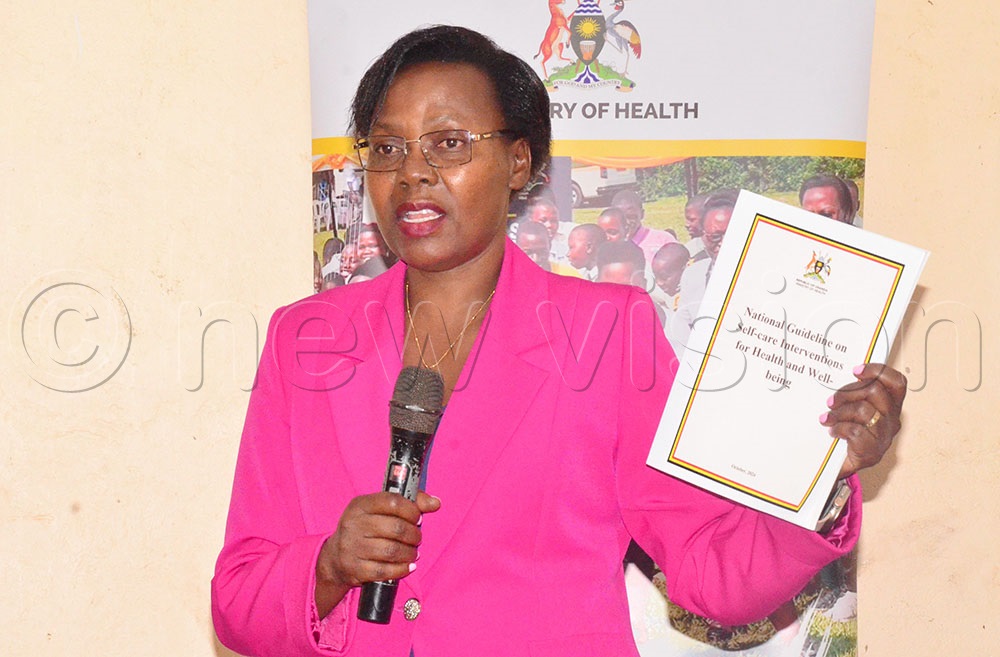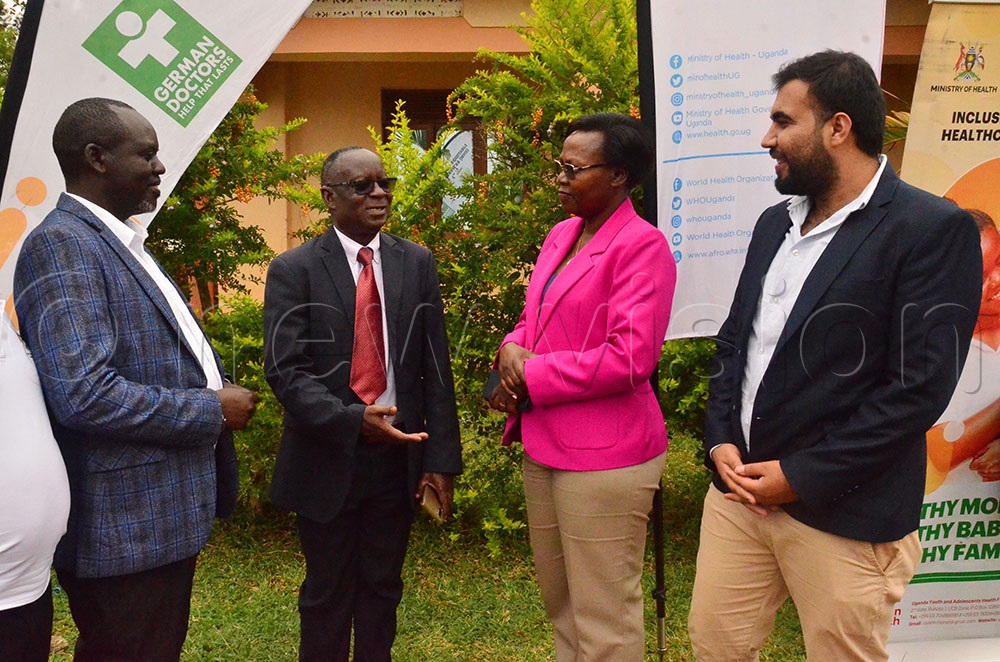WHO urges government to provide funds for self-care activities
The WHO technical officer, Yosuf Amran, said the self-care guidelines will help Uganda to achieve the universal health coverage (UHC) indicators very soon.
Participants during a policy dialogue on operationalising self-care guidelines in Uganda at Butebo district headquarters on Thursday. (Credit: Agnes Kyotalengerire)
The World Health Organization (WHO) has urged the Government to provide funds and mobilise local resources to implement the self-care guidelines.
The WHO technical officer, Yosuf Amran, said the self-care guidelines will help Uganda to achieve the universal health coverage (UHC) indicators very soon.
“We encourage the districts to include the self-care implementation into their annual plans, and also include resources in their budget at district level,” Amran said.
Self-care is the practice of engaging in activities that promote and maintain one's physical, mental, emotional and spiritual well-being. It involves actively taking steps to nurture oneself, manage stress and enhance overall health.
While often viewed as a luxury, self-care is essential for preventing burnout, promoting resilience and maintaining a healthy lifestyle.
Uganda’s self-care guidelines are well aligned with Universal Health Coverage goals and are integrated into key national policy instruments. They focus on three core domains: self-awareness, self-testing and self-management. The six priority areas include antenatal care, family planning, HIV and STIs, post-abortion care and non-communicable diseases.
Amran said these areas reflect some of the most pressing health needs of Uganda’s population.
Dr Roselline Achola
Uganda was one of the first countries to adopt and develop national self-care guidelines. These were launched in October 2024.
This followed the WHO’s initial launch of the self-care guidelines in 2019, which were expanded in 2022 to cover additional health areas.
“The adoption of these guidelines is a clear demonstration of Uganda’s commitment to embedding self-care into the health systems in a sustainable, people-centred way,” Amran said.
He noted that failure to embrace the guidelines puts a lot at stake.
“When the population lacks self-care, people in homes and communities fall sick, consequently overwhelming the healthcare system and particularly causing workload in health facilities.”
He called for the need to sensitise individuals, families and communities, and to provide them with information and tools to take care of themselves.
He made the remarks during a policy dialogue on operationalising self-care guidelines in Uganda, held at Butebo district headquarters on July 31, 2025.
Organised by the Ministry of Health Self-Care Programme, WHO Uganda and Butebo District Local Government, the dialogue was attended by officials from WHO, UN agencies, the Ministry of Health, civil society organisations (CSOs) and Butebo District Local Government.
The commissioner for community health, Dr Opentho George, described self-care as the act of taking health out of hospitals and bringing it to the community.
Dr Opentho said self-care does not require magical scientific interventions.
“We are saying this self-care must be personalised care. With personalised care, individuals should be able to do personal hygiene practices such as brushing teeth, bathing regularly, ensuring a balanced diet and keeping physically active,” he said.
The prime minister of Tieng Adhola, Obbo Richard Josel, urged the community to embrace self-care to avoid developing non-communicable diseases.
Obbo faulted people who lead a sedentary lifestyle that involves a lot of sleeping and sitting while watching television.

The commissioner community health, Dr George Opentho chatting with from the Ministry of Health, WHO and Butebo local district officials. (Credit: Agnes Kyotalengerire)
“Some people think eating a lot and not engaging in chores is good. Little do they know that it is the beginning of all health complications,” he said, and added: "Self-care management is very important and it takes a lot of discipline, hence the need for continued public sensitisation''
The technical specialist for self-care and family planning at the Ministry of Health, Dr Roselline Achola, urged healthcare professionals to support the public with the right information at all times.
Achola said the public should embrace self-testing as one of the pillars of self-care, and only seek help when things are not good.
In this regard, the resident district commissioner, Sadiq Bategana Bakale, said people should always seek professional counselling before conducting self-testing for HIV, to avoid stress in the event of a positive result.
Bategana also told the community not to mistake self-care for self-medication.
As a way of promoting physical activity, a sports competition was held at Butebo district headquarters prior to the self-care event. Both men’s and women’s teams from the Ministry of Health competed against those from Butebo district headquarters. The men’s team from Butebo emerged as winners, while the women’s team from the Ministry of Health took the trophy.
From June 24 to July 24, Uganda marked Self-Care Awareness Month. The national commemoration was held on July 31 at Butebo district headquarters under the theme: “Self-care interventions for health and wellbeing. Unleashing young persons’ potential.”
This period is dedicated to promoting the importance of self-care and well-being for individuals.
The month encourages people to prioritise their mental, emotional and physical health by engaging in activities that support overall well-being, Achola noted.